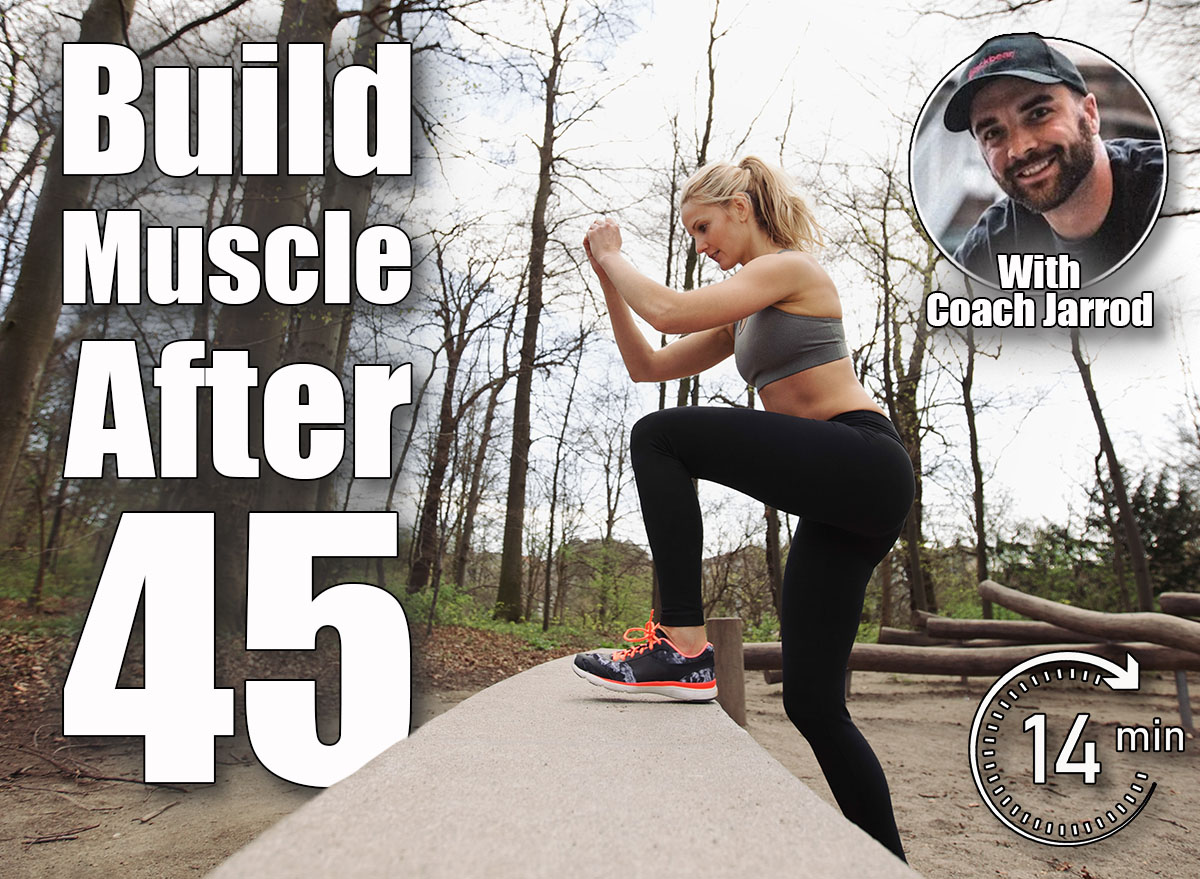4 Classic Bodyweight Moves That Build More Muscle Than Gym Workouts After 45

Gym memberships, heavy barbells, and high-tech machines might look impressive, but sometimes the simplest tools produce the strongest results. Your own body can be a fully stocked training facility if you know how to use it. For those over 45, proper bodyweight exercises provide the muscle-building stimulus you need without the hassle of crowded gyms or complicated setups.
After 45, training smart matters more than training hard. The right moves should challenge your muscles while keeping your joints safe and promoting a fast recovery. Bodyweight classics hit that sweet spot. They force you to stabilize, control, and generate power through natural ranges of motion. That helps you build strength that shows up not only in your arms or legs, but in your daily life.
In this article, we will examine four classic bodyweight exercises that outperform many gym workouts for muscle growth after the age of 45. Each one comes with instructions, variations, and form tips so that you can incorporate them into your weekly training.
4 Classic Bodyweight Moves That Build Muscle After 45
Chin-Ups
Few exercises build upper body muscle like chin-ups. They develop pulling power through your back, arms, and shoulders while simultaneously training grip strength. Plus, there is a certain satisfaction in hoisting your body over a bar that no machine can replicate. For busy adults, chin-ups also save time because they work several major muscles in a single move.
Muscles Trained: Lats, biceps, rear delts, core
How to Do It:
- Grab a pull-up bar with your palms facing you and hands shoulder-width apart.
- Hang with your arms straight and core braced.
- Pull your chest toward the bar by driving your elbows down.
- Pause briefly at the top with your chin above the bar.
- Lower yourself slowly until your arms are straight.
Recommended Sets and Reps: Perform 3 to 5 sets of 5 to 10 reps. Rest for 90 seconds between sets.
Best Variations: Neutral-grip chin-ups, band-assisted chin-ups, towel grip chin-ups
Form Tip: Squeeze your shoulder blades together and down as you pull to maintain a strong and controlled movement.
Step-Ups
Step-ups train your legs one side at a time, which is excellent for balance, stability, and fixing strength imbalances. They load your quads and glutes in a way that feels more natural than many weighted leg machines. Plus, you only need a bench, a box, or even a set of stairs to get started. The higher the step, the more complex the challenge.
Muscles Trained: Quads, glutes, hamstrings, calves
How to Do It:
- Stand facing a bench, box, or sturdy surface at knee height.
- Place one foot on the bench and drive through your heel.
- Push your body up until your working leg is fully extended.
- Bring your trailing foot up lightly to meet the lead foot.
- Lower back down with control and repeat on the same leg before switching.
Recommended Sets and Reps: Perform 3 to 4 sets of 10 to 12 reps per leg. Rest for 60 to 75 seconds between sets.
Best Variations: Weighted step-ups with dumbbells, lateral step-ups, explosive step-ups
Form Tip: Keep your chest tall and avoid pushing off the back leg. Focus on driving through the working leg only.
Push-Ups
Push-ups are the undisputed king of bodyweight pressing. They train your chest, shoulders, triceps, and core all at once. They also teach you how to brace your body in a plank position while moving dynamically. For anyone over 45, push-ups are a convenient, joint-friendly exercise that can be endlessly adjusted to suit your strength level.
Muscles Trained: Chest, triceps, shoulders, core
How to Do It:
- Set your hands under your shoulders with your body in a straight line from head to heels.
- Brace your core and squeeze your glutes.
- Lower your chest toward the floor by bending your elbows.
- Stop just above the ground while keeping your elbows close to your body.
- Press back to the starting position until your arms lock out.
Recommended Sets and Reps: Perform 4 to 5 sets of 12 to 20 reps. Rest for 60 seconds between sets.
Best Variations: Close-grip push-ups, decline push-ups, archer push-ups
Form Tip: Keep your body tight like a plank. If your hips sag or pike up, reset before your next rep.
Reverse Crunch
The reverse crunch is one of the best ab builders you can do without equipment. It targets the lower abs more effectively than standard crunches and spares your neck from strain. Over time, strong abs protect your spine, improve posture, and make every other lift feel stronger. It is also an easy way to finish a workout with a serious core burn.
Muscles Trained: Lower abs, hip flexors, obliques, deep core stabilizers
How to Do It:
- Lie on your back with your arms by your sides.
- Bend your knees to a 90-degree angle and lift your feet off the floor.
- Pull your knees toward your chest while lifting your hips off the ground.
- Slowly lower your hips back down until your feet hover just above the floor.
- Keep your movement controlled without swinging your legs.
Recommended Sets and Reps: Perform 3 to 4 sets of 12 to 15 reps. Rest for 45 seconds between sets.
Best Variations: Hanging reverse crunch, incline reverse crunch, stability ball reverse crunch
Form Tip: Exhale as you curl your hips up. That helps you engage your abs instead of relying on momentum.
The Best Habits to Build Muscle After 45

Building muscle after 45 is about more than the exercises you choose. Consistency, recovery, and proper lifestyle choices amplify every rep you do. Here are the habits that make the difference:
- Prioritize Protein: Aim for 25 to 35 grams of high-quality protein at each meal to fuel recovery and growth.
- Train Consistently: Commit to at least three sessions per week of full-body or bodyweight strength training.
- Emphasize Recovery: Get 7 to 9 hours of sleep each night and take rest days when your body needs them.
- Stay Hydrated: Muscle tissue functions better when you are properly hydrated. Keep water close and drink throughout the day.
- Progress Over Time: Add reps, sets, or more challenging complex variations of each move as you improve to keep your muscles adapting.
- Mix in Mobility Work: Regular stretching and joint mobility drills help keep you moving well and reduce your risk of injury.